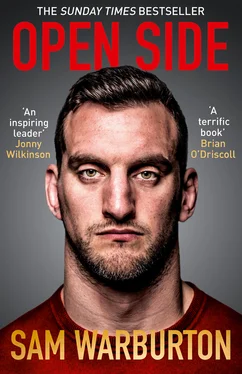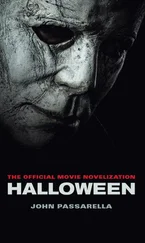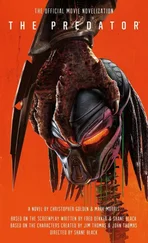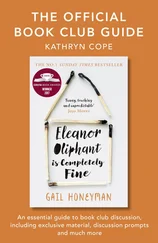There is one way of getting me out of the jackal position, though only one team have worked it out and even then I’m not sure they know they’ve done it. Whenever you play against France, you can guarantee they’ll be grabbing your balls like it’s going out of fashion. That gets me off the ball better than any clean-out. Just pull my bollocks and I’m off.
Sunday, 23 May. The Blues reach the final of the Amlin Challenge Cup, basically the plate competition for those teams that don’t make it through to the latter stages of the Heineken Cup. The final’s in Marseilles, and we’re up against Toulon, a side for whom this is almost a home game – less than an hour’s drive away – and who are chock full of international superstars: Jonny Wilkinson, Juan Martín Fernández Lobbe, Tana Umaga and Sonny Bill Williams. The stadium’s a sea of black and red, Toulon’s colours, with only a few hundred Blues fans in there. We’re massive, massive underdogs.
And we win. Against all the odds, we hold out for a 28–21 final score. It’s the first time any Welsh club has won a European title. I should be bursting with pride, and for the boys I am, but I don’t really feel part of the victory.
It’s not just that I only came on as a sub in the final, and didn’t play in either the quarters against Newcastle or the semis against Wasps. It’s that, much as I love the Blues – and I really do, I’m a one-club man, both as player and fan – I don’t play quite as intensely for them as I do for Wales.
I still play to a high standard, don’t get me wrong. But when I play for Wales, I’m ruined for days afterwards. The way I play is so physical that if I played for the Blues week in, week out the way I play for Wales a handful of times a year, I’d never be off the physio’s table, and I’d be retired by the age of 25. My body just wouldn’t take it.
It’s an emotional thing as much as a physical one. Getting yourself up for the confrontation on the weekend isn’t just a matter of putting on the strapping and going out there. It’s a lot of mental strain, a lot of the old Shakespearian stiffening up the sinews. That takes its toll too.
And I’m the kind of player who needs pressure to really perform. With the best will in the world, even a European club final isn’t remotely on the same level as a Six Nations match, a World Cup knockout tie or a Lions Test. I need those environments in which to perform my best.
And if this leaves the Blues feeling a little short-changed, then I understand that and to an extent agree with it. But like all players, I’m not a robot.
Saturday, 5 June. South Africa at the Millennium. Martyn’s been given the summer off. He’s 34, and even his storied career is going to end sooner rather than later. This is your chance, coach Warren Gatland – Gats – tells me. This is your chance to prove to me that you’re our best 7. He leaves the second half unspoken: not just for this year but next year too, when the World Cup’s taking place in New Zealand. Put down a marker for that tournament.
It’s my first time playing South Africa, and I love it. Perhaps more than any other team, they pride themselves on physical confrontation, which suits me just fine. In the first 15 seconds I tackle Joe van Niekerk, their number 8, but I get my head position slightly wrong and cop the most almighty crack in the gob.
I can taste the blood welling up inside my mouth. I take my gumshield out and feel for my teeth, checking that they’re all there, but the blow’s been so hard that I can’t feel them properly.
‘Mate,’ I say to fellow forward Jonathan Thomas, ‘can you check my teeth?’
He has a look. ‘Yeah, they’re all there. You’ve got a big old gash, though.’
Gashes are ten a penny. Crack on. I throw myself into contact after contact. It’s fast and furious, and when I’m subbed off with a couple of minutes to go we’re trailing by only three points, 34–31 down.
‘Let’s have a look at you,’ the doctor says afterwards.
He presses his finger on the underside of my jaw, and I almost go through the ceiling.
‘Yup,’ he says. ‘You’ve broken your jaw.’
Injury #3.
I need an operation, and they put a metal plate in my jaw. I’m ruled out of the summer tour to New Zealand, which is gutting; I so, so wanted to go down there and prove myself against McCaw, pretty much universally regarded as king of the opensides. And if anyone would appreciate playing 78 minutes with a broken jaw, it’s him.
Saturday, 27 November. I get to play against McCaw six months later, though not without another injury scare. Three weeks earlier, I tear my calf while playing against Australia. Injury #4. It’s somewhere between a grade 1 and a grade 2, which means I should be out for four or five weeks, which in turn means I’ll miss the New Zealand match. If you’re an international player, they’re the team you want to play: the most famous and successful in the history of the game.
‘You can get back in time,’ Andy says.
‘How?’
‘By believing.’
‘Really?’
‘Really. The right mindset can help you so much.’
I ask Prav Mathema, the Wales team physio, if he’s on board with this. I half-expect him to roll his eyes and say it’s a load of bunk, but no, he agrees with Andy, 100 per cent.
‘All right,’ I say. ‘Let’s do this.’
I pepper Prav with questions about the anatomy of the calf. When I have a picture in my mind of what’s beneath my skin, I start to visualise the torn fibres knitting themselves back together again. In my head, I send the positive green breathing energy from my lungs to my arteries, directing blood flow to the affected area and dragging all the damaged red energy back out again where it can’t do any more harm.
Four weeks, they said. I’m recovered in two. The fourth injury of my career, but the first time I really see how much difference a positive mindset can make.
We lose the game 37–25, but I feel I match McCaw in our personal duel, just as I’d matched David Pocock in the match against Australia. These two are as good as it gets, so to hold my own against them when I’ve only just turned 22 is a great confidence boost. Prove to me you’re our best 7, Gats had said. I’ve done that, surely, and a bit more too.
Saturday, 19 March 2011. Our final Six Nations game, against France in the Stade de France. Fifteen minutes in, I have to go off with a knock to the knee.
Injury #5.
I watch from the bench as we lose 28–9.
For the team, it’s been a mixed tournament. We lost our first match to England – our eighth defeat on the trot including the summer and autumn internationals – before winning the next three games: Scotland 24–6, Italy 24–16 (including my first try for Wales, running the inside line off James Hook: a 15-metre break that gets longer and involves beating more players with every retelling, as all forwards’ tries should do), and Ireland 19–13. We end up fourth with six points, the same as Ireland, but behind them on points difference and tries scored.
More than the results, though, there’s a sense that things are changing. Some of the old guard have been phased out, leaving a young team that might not have so much experience, but that has got both talent and the willingness to work together. We’ve done tons of fitness, strength and conditioning work – perhaps to the detriment of the rugby itself at times – because Gats has his eyes not just on this tournament but on the World Cup too. He thinks we can go far, but to do so we’ll need to match our opponents physically as much as anything else.
For me personally, the 2011 Six Nations feels like a triumph. Until the injury against France, I’ve played every minute of every game, and been consistently good. Almost every newspaper’s team of the tournament has me in at 7. To be brutally honest, I feel I should win the official player of the tournament award. This year, however, they’ve changed the way it’s decided, with a shortlist purely from the man of the match winners from the opening four rounds, before the public can vote for the winner. As a result, a couple of Italian players come first and second, even though their team received the wooden spoon.
Читать дальше












